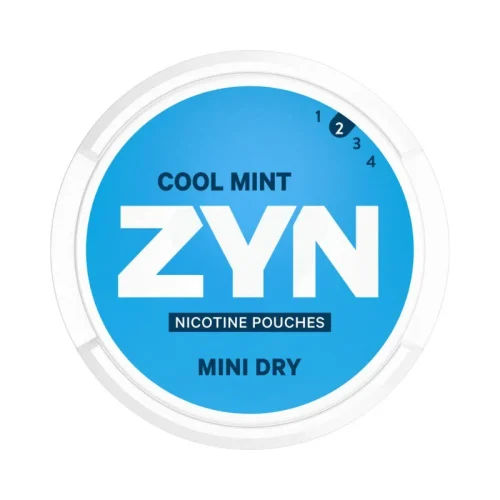Nicotine, the main ingredient of nicopods, can have beneficial effects on your cognitive skills, according to some experts. Known to potentially boost learning and memory, it can also improve the mental alertness of people with disorders like Alzheimer’s and ADHD. Still, frequent use of this addictive substance causes your body to adapt, leading to dependence.
Quitting nicotine can be challenging, especially when it’s accompanied by intense and unpleasant withdrawal symptoms. This comprehensive guide will tell you everything about nicotine pouch withdrawal symptoms, including how they can manifest, how long they can last, and how to manage them.
What Causes Nicotine Withdrawal?
When you use a nicotine pouch, nicotine stimulates receptors in your brain, triggering the release of neurotransmitters, such as:
- Dopamine
- Serotonin
- Norepinephrine
- Acetylcholine
- Gamma-aminobutyric acid
- Glutamate
As your body gets used to its regular dose of nicotine, you develop a physiological dependence on the substance. When you stop using nicopods, you abruptly cut off your brain’s daily dose of stimulation, and the first symptoms of nicotine withdrawal kick in.

Source: Swenico
What Are Nicotine Pouch Withdrawal Symptoms?
Whether physical or psychological, the withdrawal symptoms you experience can be intense and uncomfortable. Recognizing the signs of nicotine withdrawal can help you anticipate and manage the symptoms accordingly.
The most common ones include:
- Nicotine cravings
- Anger, frustration, and irritability
- Anxiety
- Depression
- Sleep pattern disturbances and cessation fatigue
- Weight gain and increased appetite
The following sections offer a closer look at these symptoms and specific issues you may experience as a result of quitting nicotine.
Nicotine Cravings
As the first and most difficult withdrawal symptom, nicotine cravings are triggered by your brain’s nicotinic acetylcholine receptors craving nicotine to which they have become addicted.
Although intense, the cravings are temporary and typically last around ten minutes. Still, they can appear on and off for several days or weeks after quitting nicotine, so it’s important to weather the storm and power through if you’re determined to discontinue the use.

Source: Ashish_Choudhary
Anger, Frustration, and Irritability
Quitting nicotine can cause a range of emotional reactions, with mood swings taking the lead. Without the usual dose of nicotine, you can become easily irritable, stressed out, and even irrationally angry. You might also experience some short-term physiological reactions, including:
- Increased blood pressure
- Elevated heart rate
- Difficulty concentrating
- Memory issues
- Dizziness
As a result, you may feel less patient and more likely to get into arguments. To overcome these feelings, it’s crucial you find ways to cope with the stress.
Anxiety
When you stop using nicotine pouches, you leave your body without the substance that helps it feel relaxed. As a result, you may become more anxious and tense, experiencing tightness in your neck and shoulder muscles.
Anxiety can also raise your heart rate and make you feel like you can’t catch your breath. Still, this doesn’t mean there’s anything wrong with your heart—it’s only your body adjusting to the change.
Depression
It’s common to feel low-spirited when you quit nicotine, with symptoms of mild depression occurring during the first few weeks.
Studies show that quitting nicotine can be more challenging if you’ve dealt with depression before. You might experience a temporary dip in mood, but for most people, it’s only a passing wave, not a full-blown depressive episode.
Besides the depression symptoms you might face, quitting nicotine can also cause temporary emotional swings, including:
- Feeling down and hopeless, with a dip in self-esteem
- Struggling to find motivation and feeling lethargic
- Tearing up more easily
- Having trouble concentrating on tasks

Source: Sammy-Sander
Sleep Pattern Disturbances and Cessation Fatigue
Quitting nicotine pouches can mess with your sleep, and you might experience insomnia or feel drained during the day. The absence of nicotine can cause changes in brain chemistry, increase stress, and affect the REM stage—all of which can affect your regular sleep cycle.
This disruption of your sleep pattern can lead to cessation fatigue, a feeling of tiredness in people recovering from chronic nicotine use. It’s caused by a combination of physical and psychological factors, and research shows that this feeling is strongest after quitting nicotine, gradually reducing in intensity over the following six months.
Weight Gain and Increased Appetite
When you stop using nicotine, you may experience a surge in appetite. This substance can mess with your body’s ability to regulate sugar, so you may crave carbs and sugar more often, leading to weight gain. It’s typical to gain up to ten pounds after quitting, especially in the first three months.
If you’re struggling with nicotine withdrawal symptoms, it’s best to see a doctor who can help you create a personalized quitting plan. In case you feel a strong urge for nicotine that won’t go away, consider using nicotine pouches. Although not officially a nicotine replacement therapy (NRT) method, they can provide short-term relief from the cravings.
Should you opt for nicopods to help alleviate the symptoms of nicotine withdrawal, make sure you consume only premium products. Low-quality nicotine pouches can ruin the experience by delivering inconsistent nicotine amounts and causing side effects. Relying on reliable vendors like SnusBoss is the best way to get safe, high-quality products.
Choose the Best Nicotine Pouches for a Premium Experience
A trusted online retailer of top-quality nicotine pouches, SnusBoss sources products from the EU, where progressive laws have allowed manufacturers to perfect nicopod formulas and production, resulting in pouches with superior moisture content, richer flavor profiles, and a more satisfying hit.

Source: SnusBoss
The industry experts behind SnusBoss put every brand to the test, so you only get the best products that take your experience to the next level.
Check out the table below for SnusBoss’ impressive selection of nicotine pouches, guaranteed to satisfy the most demanding nicotine consumers:
| Zyn | Velo | Glitch | Roger | Kurwa |
| GOAT | Snatch | Kick | Pik | Paz |
| Jäger | Thunder | Kozmo | Dope | Skruf |
| Klint | Chapo | Pablo | Hit | Thor |
| Oryx | Denssi | Siberia | Killa | White Fox |
Ordering from SnusBoss couldn’t be easier:
- Visit the online store
- Choose your preferred brand, strength, and flavor
- Enter your shipping and payment info
With SnusBoss, you can enjoy many benefits, including:
- Fast delivery (2–3 business days if you choose express shipping)
- Free shipping for orders larger than $249
- Generous loyalty programs for all dedicated customers
Nicotine Pouch Withdrawal Symptoms Timeline
Even with the initial help of nicopods, quitting nicotine comes with unpleasant but temporary effects, especially during the first few weeks. The table below gives you a general idea of what to expect in the hours, days, and weeks after complete discontinuation.
| Time Frame | Effect |
| 30 minutes–4 hours | The effects of nicotine gradually wear off, triggering cravings and increasing your stress level |
| 10 hours | More withdrawal symptoms set in, including restlessness and hunger caused by low blood sugar levels |
| 24 hours | The cravings may become more intense, and you may become more irritable and anxious |
| 2 days | Due to the lack of nicotine, you may experience cravings and headaches. You may also feel more anxious or sad |
| 3 days | By this time, all nicotine is out of your system. The cravings subside and give way to psychological withdrawal symptoms |
| 1 week | As your body adjusts to the lack of nicotine, you may experience cessation fatigue. You also might feel hungry more often |
| 2–4 weeks | Your appetite slowly returns to normal, and your mental health gradually improves. Still, you might temporarily experience fatigue |
| 5 weeks and onwards | At this stage, most nicotine withdrawal symptoms subside. You might feel the occasional urge to use nicotine again, but these cravings are mainly psychological and will fade with time |
Managing Nicotine Pouch Withdrawal Symptoms
Keeping cravings at bay and managing withdrawal symptoms can be challenging, but don’t worry—there are many strategies to help you along the way. The most popular ones are listed below.
- Exercise—A natural mood booster, physical activity triggers the release of dopamine, helping you overcome nicotine cravings and irritability. Next time you feel the urge to pop a nicopod, consider working out instead
- Stay away from triggers—Avoid situations that make you crave nicotine. Determining your triggers helps you control your exposure to them
- Look for distractions—Don’t let nicotine live in your brain rent-free. Shift your focus to something else. Read a book, call a friend, play a game—distract your mind with interesting activities until the craving fades
- Manage stress—Stress can be a major craving trigger. Try incorporating relaxation techniques like meditation or yoga into your daily routine to keep your mind at ease
- Eat healthy—Resist the urge to grab sugary snacks or greasy food when your hunger pangs hit. Instead, choose healthy options like fruits, veggies, and whole grains to satisfy your appetite
- Treat yourself—Every nicotine-free day is a win, so don’t be afraid to reward yourself with something you enjoy. Celebrating your progress keeps you motivated to stay on the right track
Available Treatments
If you’re struggling with nicotine pouch withdrawal symptoms, don’t hesitate to reach out to your healthcare provider. They can offer additional support and recommend treatment options, including:
- Over-the-counter nicotine medications—Nicotine lozenges, gums, and patches give you nicotine in controlled doses to help with cravings and withdrawal symptoms
- Prescription nicotine medications—Nasal sprays and oral inhalers provide fast-acting nicotine relief for intense cravings
- Prescription non-nicotine options—Antidepressants and nicotine cessation aid medications that offer alternative ways to manage cravings without using nicotine
If you’re facing emotional or mental problems as a result of quitting nicotine, you don’t have to go through it alone. There are many resources and support groups you can contact for help, including:
- 1.800.QUIT.NOW—A dedicated one-on-one quitline that provides free over-the-phone guidance
- Nicotine Anonymous—A non-profit support group offering cessation programs and nicotine withdrawal aids
- Smokefree.gov—A dedicated website that offers cessation apps, texting support, step-by-step programs, and other helpful resources
Featured image source: geralt


















